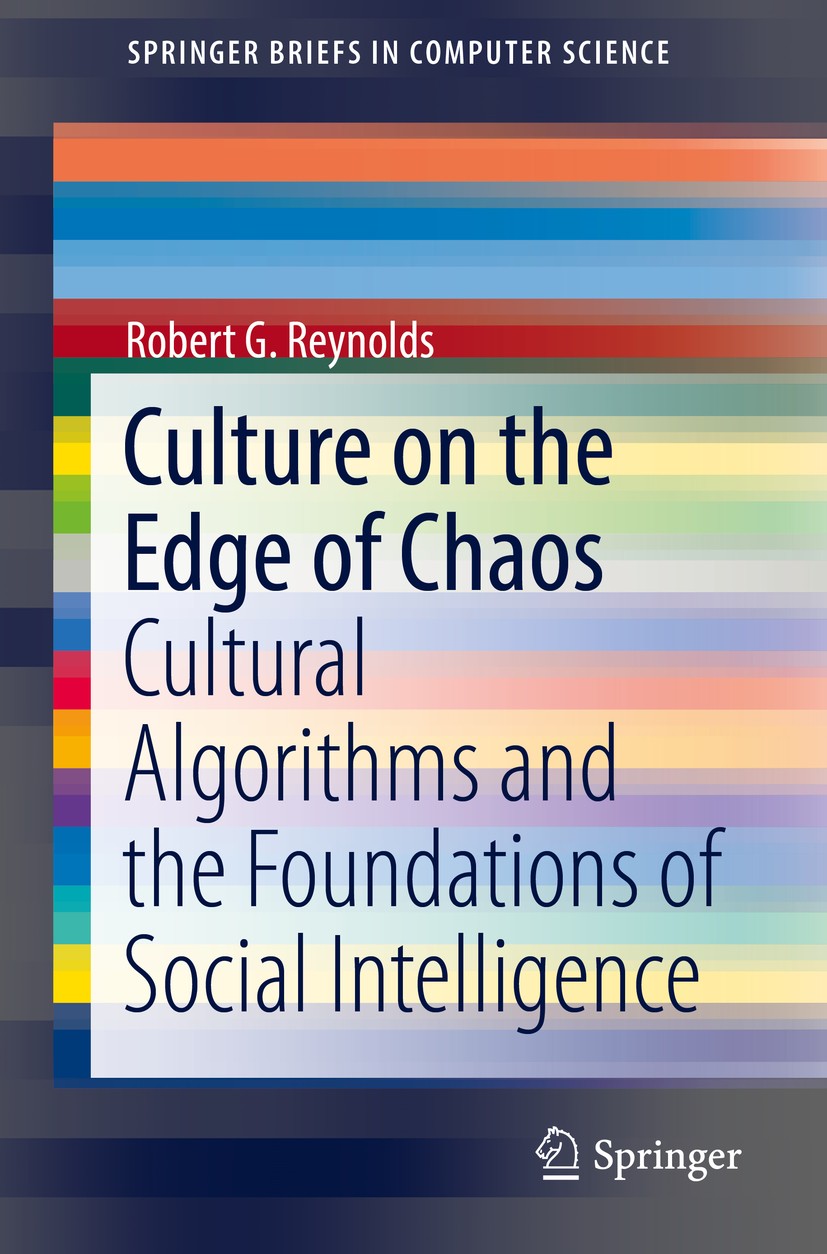| 書目名稱 | Culture on the Edge of Chaos |
| 副標(biāo)題 | Cultural Algorithms |
| 編輯 | Robert G. Reynolds |
| 視頻video | http://file.papertrans.cn/242/241016/241016.mp4 |
| 概述 | Cultural algorithm has three major components: a population space, a belief space, and a communication protocol that describes how these components exchange knowledge.Author originated the cultural al |
| 叢書名稱 | SpringerBriefs in Computer Science |
| 圖書封面 |  |
| 描述 | The author first introduces the basic framework for cultural algorithms and he then explains the social structure of a cultural system as a mechanism for the distribution of problem-solving information throughout a population. Three different models for social organizations are presented: the homogeneous (nuclear family), heterogeneous (expanded family), and subculture (descent groups) social models. The chapters that follow compare the learning capabilities of these social organizations relative to problems of varying complexity. The book concludes with a discussion of how the results can impact our understanding of social evolution. |
| 出版日期 | Book 2018 |
| 關(guān)鍵詞 | Cultural Algorithms; Social Intelligence; Social Evolution; Evolutionary Computing; Computational Intell |
| 版次 | 1 |
| doi | https://doi.org/10.1007/978-3-319-74171-0 |
| isbn_softcover | 978-3-319-74169-7 |
| isbn_ebook | 978-3-319-74171-0Series ISSN 2191-5768 Series E-ISSN 2191-5776 |
| issn_series | 2191-5768 |
| copyright | The Author(s), under exclusive licence to Springer International Publishing AG, part of Springer Nat |
 |Archiver|手機(jī)版|小黑屋|
派博傳思國際
( 京公網(wǎng)安備110108008328)
GMT+8, 2025-10-13 16:23
|Archiver|手機(jī)版|小黑屋|
派博傳思國際
( 京公網(wǎng)安備110108008328)
GMT+8, 2025-10-13 16:23


